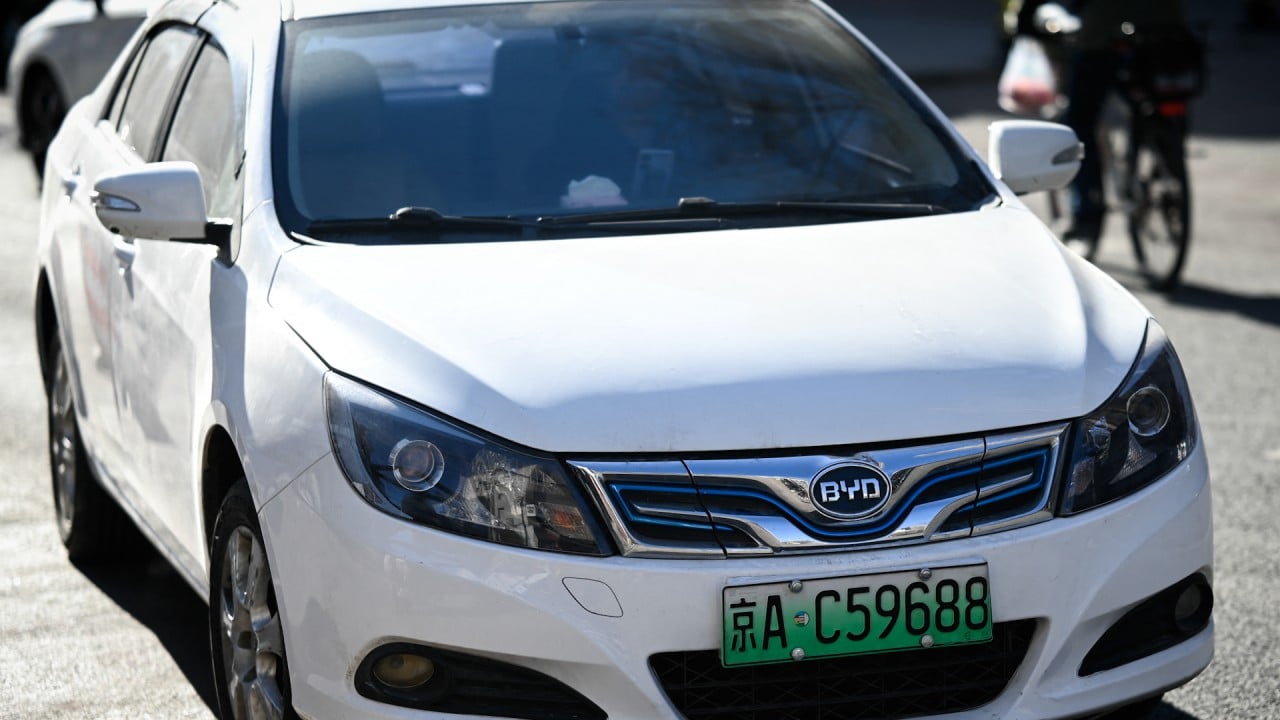
China’s BYD to post big jump in 2023 profit amid record EV deliveries, even as steep discounts dented margins
- The world’s largest electric car maker expects earnings for 2023 to jump by as much as 86.5 per cent, buoyed by record deliveries
- Its profitability, however, remains far behind rival Tesla because of the American giant’s bigger profit margins
BYD, backed by Warren Buffett’s Berkshire Hathaway, handed 3.02 million pure electric and plug-in hybrid vehicles to customers at home and abroad in 2023, up 62.3 per cent from the previous year. Most of its cars were sold in mainland China, with 242,765 units, or 8 per cent of its total deliveries, exported to overseas markets.
Tesla delivered 1.82 million cars worldwide, up 37 per cent year on year.
SDIC Securities said in a research note on Tuesday that BYD’s profit margin per vehicle dropped to about 9,100 yuan, down 1,400 yuan from a year earlier because of the discounts it offered to buyers to sustain growth momentum in sales.
BYD lowered the prices of cars in its Dynasty and Ocean series by 5,000 to 10,000 yuan in the last two months of 2023.
“The company spent heavily on sales and marketing in the fourth quarter, [for example] distributing cash rewards of 666 yuan per vehicle to those stores that achieved sales targets,” SDIC said in the note. “The reward policy also affected BYD’s profit margin.”
BYD has historically been better known for electric vehicles (EVs) priced under 200,000 yuan, about 30 per cent cheaper than premium models from Tesla.
Its blade lithium iron phosphate battery packs have proved popular with Chinese drivers and car assemblers. The battery cells are arranged in a manner that increases energy density while enhancing resistance to overheating.
In April, BYD unveiled its super luxury model, the Yangwang U8, priced at 1.1 million yuan, in a move to display its heft in car design and manufacturing.
The U8’s appearance evoked comparisons with the Range Rover among market experts. It can accelerate to 100km/h from a standstill in 3.6 seconds, and its four wheel-side motors allow the vehicle to make so-called “tank turns” and even “crab-walk” sideways.


